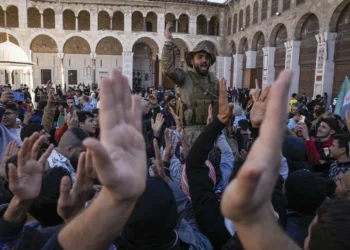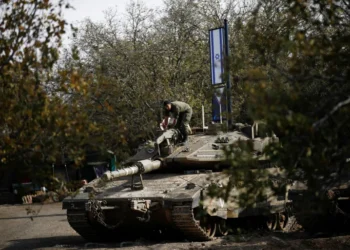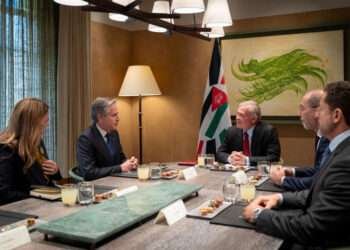A military base in Iraq housing the Popular Mobilisation Forces (PMF), a pro-Iranian militia, has been damaged in an explosion.
One person has been killed and at least eight injured after the blast at the Kalsu military base.
The Kalsu military base, located some 50km (31 miles) south of Iraq’s capital Baghdad in the province of Babil.
The bases also houses Iraqi federal police and Iraqi military forces.
The Iraqi military said that there were no drones or fighter jets detected in the airspace of the Babil area before or during the blast.
The blast came a day after Iran said it shot down three quadcopters over its skies in the central city of Isfahan near a military base where a number of fighter jets and air defence batteries were situated, with no damage or casualties reported.
In a statement, the PMF claimed “American aggression bombed the Kalso [Kalsu] military base.”
The United States denied the report.
“We are aware of reports claiming that the United States conducted airstrikes in Iraq today. Those reports are not true. The United States has not conducted air strikes in Iraq today,” the U.S Central Command posted on X.
Israeli officials have not made a public statement on the attack but an anonymous Israeli official told US media that Israel was not involved.
Abu Fadak al-Muhammadawi, the Chief of staff of the PMF, inspected the base.
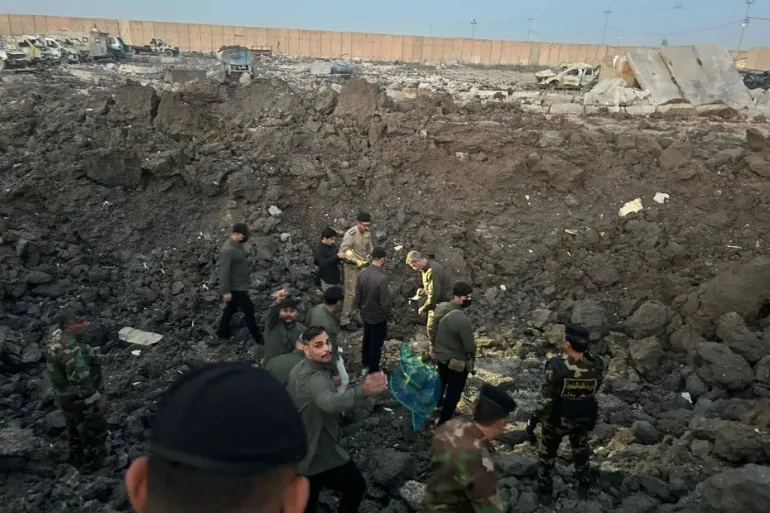
The Iraqi government stated that it was investigating the incident.
Hamas strongly condemned the reported explosions on the base in Iraq and “considers it a violation of Iraq’s sovereignty.”
“We hold the Biden administration responsible for the escalation in the region through its supply and support for the Nazi war of extermination against our Palestinian people in the Gaza Strip,” the group said in a statement.
Iraq Blast May Be Another Message
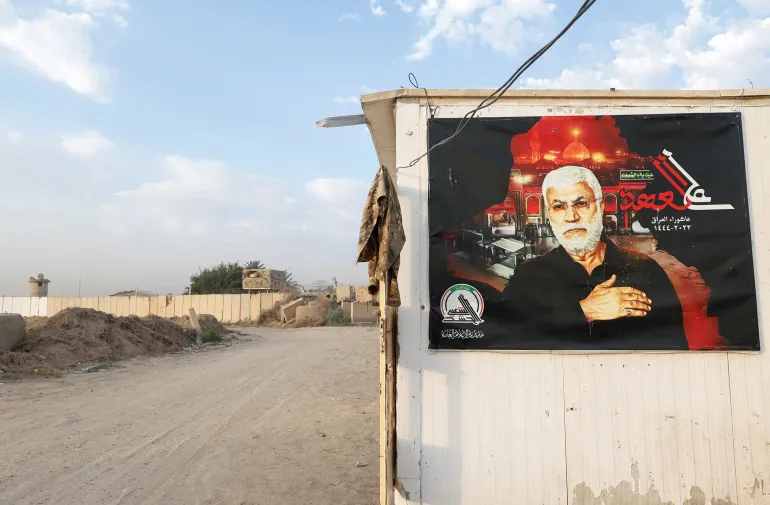
Political analyst, Rich Outzen stated that there is still not enough information to know who was behind the blast that hit a base south of the Iraqi capital Baghdad.
“If it is confirmed that it was an aircraft that raises the question of American or Israeli [involvement],” Outzen, who is a non-resident Senior Fellow at the Atlantic Council in Turkey and senior fellow at The Jamestown Foundation, said.
Outzen told a news agency that the Biden administration has been trying to tamp down on regional tensions and carefully choreographing limits on the exchange of fire directly between Iran and Israel.
“Yet this attack would be more in line with what Israel has done below the threshold of direct attacks on Iran, regionally as they’ve attacked Iranian-backed militias frequently in Syria, in Iraq.
“This may be another message to Iran saying if you’re going to use Hezbollah, potentially, or Hamas, to attack us. We will attack proxies in Iraq and Syria.”
Rich Outzen
Political Analyst, Tamer Qarmout also told a news agency that Iran-Israel appear to return to “proxy warfare.”
Qarmout stated that the confrontation between Iran and Israel seems to have returned to its traditional shadow war and the world’s focus can now return to Gaza.
“This round of direct military confrontation is over, now we’re back to the previous rules of engagement, proxy warfare,” he opined.
According to Qarmout, this involves exchanges of fire at the Lebanon-Israeli border, attacks from the Houthis in the Red Sea, and strikes on Iran-backed armed groups in Iraq and Syria.
“Now the centre of attention is going back to Gaza where there is an expectation that there will be a military operation in Rafah,” Qarmout said.
READ ALSO: IMF Urges Election-Bound Nations like Ghana to Strengthen Fiscal Resilience


